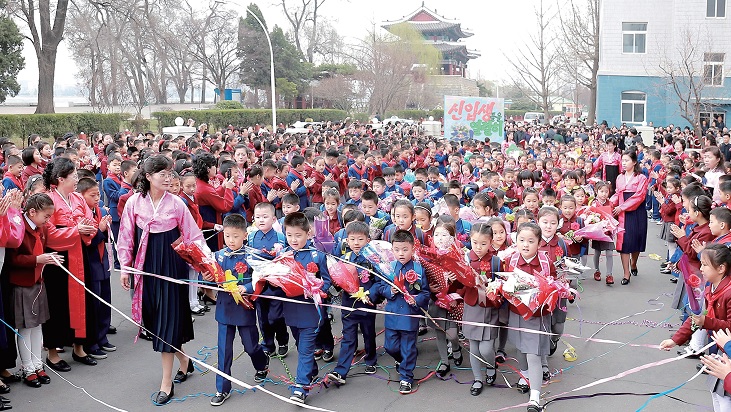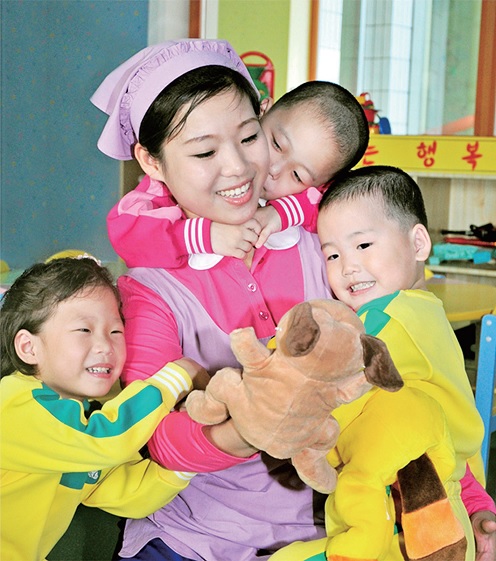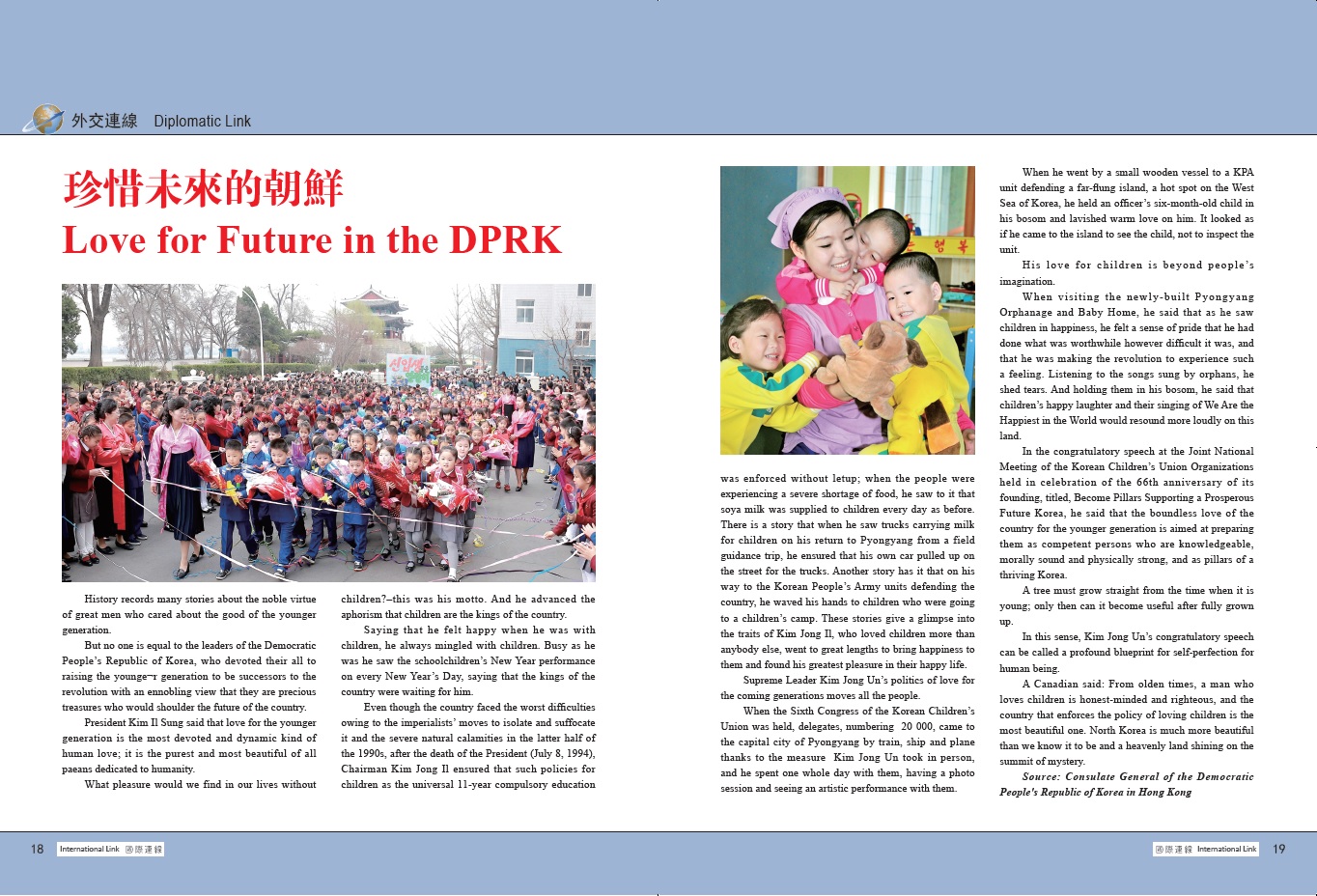珍惜未來的朝鮮
珍惜未來的朝鮮
Love for Future in the DPRK

History records many stories about the noble virtue of great men who cared about the good of the younger generation.
But no one is equal to the leaders of the Democratic People’s Republic of Korea, who devoted their all to raising the younger generation to be successors to the revolution with an ennobling view that they are precious treasures who would shoulder the future of the country.
President Kim Il Sung said that love for the younger generation is the most devoted and dynamic kind of human love; it is the purest and most beautiful of all paeans dedicated to humanity.
What pleasure would we find in our lives without children?–this was his motto. And he advanced the aphorism that children are the kings of the country.
Saying that he felt happy when he was with children, he always mingled with children. Busy as he was he saw the schoolchildren’s New Year performance on every New Year’s Day, saying that the kings of the country were waiting for him.
Even though the country faced the worst difficulties owing to the imperialists’ moves to isolate and suffocate it and the severe natural calamities in the latter half of the 1990s, after the death of the President (July 8, 1994), Chairman Kim Jong Il ensured that such policies for children as the universal 11-year compulsory education was enforced without letup; when the people were experiencing a severe shortage of food, he saw to it that soya milk was supplied to children every day as before. There is a story that when he saw trucks carrying milk for children on his return to Pyongyang from a field guidance trip, he ensured that his own car pulled up on the street for the trucks. Another story has it that on his way to the Korean People’s Army units defending the country, he waved his hands to children who were going to a children’s camp. These stories give a glimpse into the traits of Kim Jong Il, who loved children more than anybody else, went to great lengths to bring happiness to them and found his greatest pleasure in their happy life.

Supreme Leader Kim Jong Un’s politics of love for the coming generations moves all the people.
When the Sixth Congress of the Korean Children’s Union was held, delegates, numbering 20 000, came to the capital city of Pyongyang by train, ship and plane thanks to the measure Kim Jong Un took in person, and he spent one whole day with them, having a photo session and seeing an artistic performance with them.
When he went by a small wooden vessel to a KPA unit defending a far-flung island, a hot spot on the West Sea of Korea, he held an officer’s six-month-old child in his bosom and lavished warm love on him. It looked as if he came to the island to see the child, not to inspect the unit.
His love for children is beyond people’s imagination.
When visiting the newly-built Pyongyang Orphanage and Baby Home, he said that as he saw children in happiness, he felt a sense of pride that he had done what was worthwhile however difficult it was, and that he was making the revolution to experience such a feeling. Listening to the songs sung by orphans, he shed tears. And holding them in his bosom, he said that children’s happy laughter and their singing of We Are the Happiest in the World would resound more loudly on this land.
In the congratulatory speech at the Joint National Meeting of the Korean Children’s Union Organizations held in celebration of the 66th anniversary of its founding, titled, Become Pillars Supporting a Prosperous Future Korea, he said that the boundless love of the country for the younger generation is aimed at preparing them as competent persons who are knowledgeable, morally sound and physically strong, and as pillars of a thriving Korea.
A tree must grow straight from the time when it is young; only then can it become useful after fully grown up.
In this sense, Kim Jong Un’s congratulatory speech can be called a profound blueprint for self-perfection for human being.
A Canadian said: From olden times, a man who loves children is honest-minded and righteous, and the country that enforces the policy of loving children is the most beautiful one. North Korea is much more beautiful than we know it to be and a heavenly land shining on the summit of mystery.






